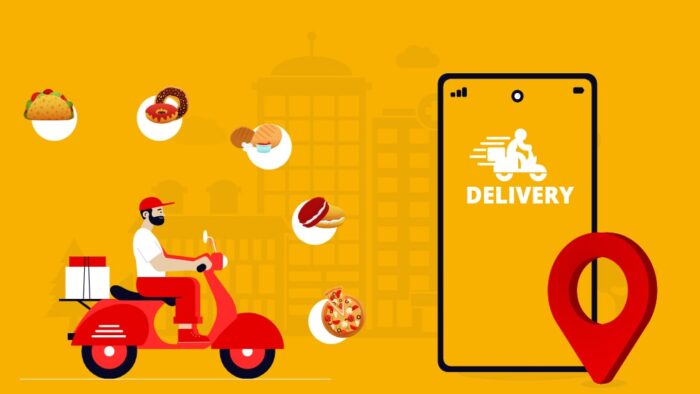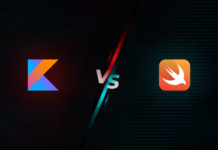
In a world where every tap on a smartphone screen sets the wheels in motion and where a single click can connect a hungry customer with a driver miles away, the gig economy has morphed into a digital labyrinth of opportunity and challenge. As a food delivery app development company, it’s impossible not to recognize the profound impact that technology has on this sector.
In this article, we will delve into the role of software developers in shaping the gig economy, exploring the benefits these apps offer to drivers and the concerns that arise in this digital ecosystem.

The Gig Economy and Food Delivery Apps
As software developers, understanding the dynamics of the gig economy is crucial to comprehending our role in this evolving landscape. The gig economy, characterized by short-term, freelance, or contract work facilitated by digital platforms, presents both opportunities and challenges that directly impact our work.
Within this gig economy, food delivery apps have emerged as transformative players. They serve as the connective tissue between hungry customers and a growing army of drivers, all through intuitive mobile applications that we, as developers, have a hand in crafting.
The rapid growth of the food delivery industry necessitates robust and scalable technology solutions. Software developers play a central role in meeting this demand, making our work fundamental to the industry’s continued expansion.
Enhancing Benefits for Food Delivery Drivers
For software developers, improving the lives of food delivery drivers is not just about code; it’s about creating a user experience that empowers and supports these workers. Here, we explore how we can enhance the benefits they derive from food delivery apps.
User-Friendly Interfaces: Crafting user-friendly interfaces is at the core of our mission. As drivers rely on these apps for navigation, order management, and customer interactions, providing them with an intuitive and seamless experience is essential.
Optimizing Algorithms: Our work isn’t just lines of code; it’s the algorithms that drive efficient route planning, saving time and money for drivers. We can contribute to enhancing their earnings by refining these algorithms.
Data Security and Privacy: Ensuring the security of sensitive user data is paramount. By developing robust security measures, we foster trust in the platform, safeguarding the interests of both drivers and customers.
Financial Management Tools: Empowering drivers with tools for tracking earnings and managing expenses can significantly improve their economic stability, all made possible by our development efforts.

Addressing Concerns and Challenges in the Gig Economy
As software developers, it’s our responsibility to navigate the challenges that arise in the gig economy. Understanding and addressing these concerns is vital for the continued success and sustainability of food delivery apps.
Navigating Regulatory Complexities: The gig economy’s regulatory landscape is a maze, with varying rules and regulations in different regions. Collaborating with legal experts is essential to ensure our platforms comply with the ever-changing regulatory environment.
Risk Mitigation: Identifying and mitigating vulnerabilities and risks, such as fraudulent orders or cyber threats, is an ongoing responsibility. Our work extends beyond creating functional apps; it involves protecting all stakeholders from potential harm.
Safety Features: Real-time safety features are integral to the well-being of drivers and customers. Our development efforts can directly impact the safety of these interactions, potentially saving lives and preventing incidents.
Stakeholder Collaboration: Collaboration between developers and all stakeholders, including workers, consumers, and platform operators, is essential. By creating features that promote fair and ethical interactions, we contribute to a healthier gig economy ecosystem.
Software Developer’s Role in Navigating the Legal and Regulatory Landscape
As software developers, it’s imperative that we understand the legal and regulatory landscape surrounding gig work. Adapting our technology to meet these regulations ensures the longevity of our platforms and the protection of all involved parties.
Understanding Evolving Legal Landscapes: Staying informed about evolving labor laws and regulations for gig workers is essential. Developers must actively engage with legal experts to ensure their platforms remain compliant with changing legislation.
Adapting Technology to Regulations: Developers should be prepared to adapt their technology promptly to meet new regulatory requirements. This may involve revising algorithms, updating user interfaces, or implementing additional features to ensure compliance with local laws.
Transparent Reporting: Building tools for transparent reporting and compliance monitoring eases the burden of regulatory compliance for both drivers and platform operators. Our development efforts can simplify record-keeping and reporting processes, helping all parties involved.

Strategies for Software Developers in Balancing Benefits and Concerns
The gig economy is a dynamic space that requires agile and thoughtful development strategies. Here, we explore how software developers can contribute to balancing the benefits and concerns in this evolving landscape.
Ethical and Sustainable Development: Embracing ethical and sustainable development practices ensures that software developers contribute positively to the gig economy’s future. By prioritizing ethical considerations in our work, we can help create a more equitable and sustainable gig economy.
Collaboration: Engaging in dialogue and collaboration with labor advocates, policymakers, and stakeholders is key to finding equitable solutions. Developers should actively participate in discussions about labor rights, worker protections, and platform accountability, advocating for fair and responsible practices within the gig economy.
Continuous Learning: The tech landscape is ever-evolving. Continuous learning and adaptation are fundamental to staying relevant and addressing emerging concerns. Developers should invest in their professional development by attending industry conferences, participating in online courses, and staying informed about the latest technological advancements.
The Future of Food Delivery Apps from a Software Developer’s Perspective
As we look to the future, software developers are poised to play an even more critical role in shaping the gig economy. The following sections explore our predictions for technological evolution, shifts in development practices, and the role of emerging technologies in food delivery apps.
Predictions for Technological Evolution: The food delivery industry is on the cusp of further technological transformation. Predictions about advancements in artificial intelligence, machine learning, and automation offer insight into what lies ahead for developers in this space.
Shifts in Development Practices: The maturation of the gig economy will lead to shifts in software development practices. Developers will need to embrace agile methodologies, prioritize user feedback, and iterate quickly to keep pace with changing customer expectations.
Role of Emerging Technologies: Artificial intelligence, automation, and other emerging technologies will play a significant role in the future of food delivery apps. Developers should explore how these technologies can be leveraged to enhance the efficiency and sustainability of gig work.

Conclusion
In conclusion, software developers wield considerable influence over the gig economy’s trajectory, shaping both its benefits and concerns. The gig economy is a dynamic and evolving landscape, and developers must strive to create solutions that strike a balance between driving business growth and ensuring the well-being and rights of gig workers. As technology continues to evolve, so too will the opportunities and challenges in the gig economy, making the role of software developers more critical than ever.
By understanding our pivotal role in the gig economy, software developers can drive positive change, ensure ethical practices, and contribute to a sustainable and inclusive future for all participants in this evolving ecosystem.











